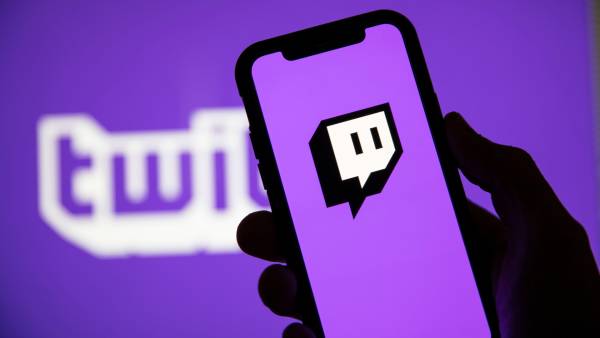The Growing Rift over Gambling on Twitch
We’ve all heard of Twitch, but if you happen to need a refresher in what the globally popular website does, here’s a brief overview for you. Twitch is an American live streaming service, moreover, it is also widely known as the world’s leading streaming service for live streams of video games, as well as music content, creative content, and more recently, ‘real life’ streams.
As a subsidiary of Amazon, Twitch is hugely popular and even takes precedence over YouTube Gaming in the US. In 2016, Twitch acquired Curse - an online video game community - that introduced a purchase feature on streams, allowing viewers to purchase games through links in live streams, thus creating commission for streamers on the sales they make. As of February 2020, Twitch had over 3 million broadcasters monthly and 15 million daily active users, with around 1.4 million average concurrent users.
To break that down, Twitch is an immensely popular website that is used all over the world, generating a huge amount of revenue for popular streamers.
The Rise Of Gambling On Twitch
Something that has come to light recently and has been causing a stir among users and gambling addiction experts is the rise on gambling on the platform. Twitch is in the middle of a gambling boom, fuelled by the rise of ‘crypto casinos’. These Crypto Casinos allow gamblers to purchase Cryptocurrencies like Bitcoin for use in digital games of chance, such as slots and blackjack. Operators using Twitch streamers to send traffic through to their site using a range of enticing gambling deals and offers are increasing in popularity.
Online gambling websites such as Stake and Roobet have been paying popular streamers to play the games on their channels in order to encourage viewers to click the links in the streams and partake in the purchase of crypto currency and online gambling. It has come to light that these websites have been reported to have paid streamers tens of thousands of dollars per hour to play these games on their streams.
In fact, one gambling website, Duelbits, reportedly offered popular Twitch streamer, Adin Ross, between $1.4 million and $1.6 million a month to stream slots on Twitch.
Gambling on Twitch Seems Pretty Popular, So What’s The Problem?
It’s clear to see from these statistics that gambling on Twitch is a big deal. It seems to be an activity that’s vastly popular and generates a huge amount of revenue for gambling websites and streamers. So what’s the issue?
A report issued by WIRED mentions that many of the gambling streams hosted on Twitch are in fact illegal and unregulated, creating definite risks to consumers, vulnerable adults, under aged children, and adolescents. Interestingly, while Twitch’s terms of service do not mention gambling streams, their leading competitors, YouTube and Facebook Gambling, specifically prohibit streams that broadcast gambling sites that haven't been reviewed.
According to sources at Twitch, the company has started to closely monitor the gambling trend due to concerns over its legality and it’s morality. In a statement issued to WIRED, Twitch reported that, “We strictly prohibit illegal content and activity on the service, and take action in all verified incidents of illegal gambling that are reported to us. Our Community Guidelines make clear that ‘[Streamers] must respect all applicable local, national, and international laws while using our services.”
Should Twitch Continue To Allow Streams Containing Gambling Content?
The big question on many people’s lips is whether or not Twitch are doing enough when it comes to monitoring the gambling streams on their site, and whether they should simply ban streams of this type across the platform.
Online slots are so popular on Twitch these days that they have their own category, however it seems that many of the other streamers who use the platform take issue with the way Twitch have allowed the continuation of these gambling streams, noting that they’re morally and ethically fraught.
What About The Legality of These Sites?
The most popular slot platform on Twitch is called Stake. Stake is an online casino that uses cryptocurrency - Stake also happens to be illegal in the US. Streamers encourage others to access the website using VPN services, despite it being an illegal website. It is safe to assume that those streamers who are being paid millions of dollars to play these games are knowingly promoting the access of illegal gamling sites within the US, yet no action seems to have been taken against them or the online casinos.
Other streamers are unhappy with the lack of action Twitch has taken.
Many Twitch streamers who use the platform for other games, such as World Of Warcraft, have criticised the streamers who get paid millions to promote gambling. One streamer called Pokimane took to her own stream to criticise the gambling content on the site, stating, "Let's be honest, if you're getting an offer from a casino sponsorship, you're already a multi-millionaire. You need to be a multi-multi-millionaire?"
Gambling experts have also criticised the lack of action taken by Twitch.
Keith Whyte, executive director of the National Council on Problem Gambling, an organisation that deals with gambling addiction but retains a neutral stance on gambling itself, has said that there's plenty of evidence that watching gambling can trigger the urge to gamble yourself. It also normalises the act.
It seems that, for the most part, people are strongly against the rise of gambling on Twitch. Many gambling experts believe that this type of stream is unethical, illegal, and glorifies gambling - especially for those who are vulnerable to suggestive content. Other users of the site are also angry about the amount of money these streamers are making at the expense of vulnerable users. To sum up, the only people who seem happy about this gambling boom are the hugely successful streamers who are gaining sponsorships and the casinos themselves.
The question is should Twitch start cracking down on the rise of gambling streams, or should they continue to allow it with the same standard on monitoring that they’re currently using?
- Payton O'Brien, Gambling911.com














